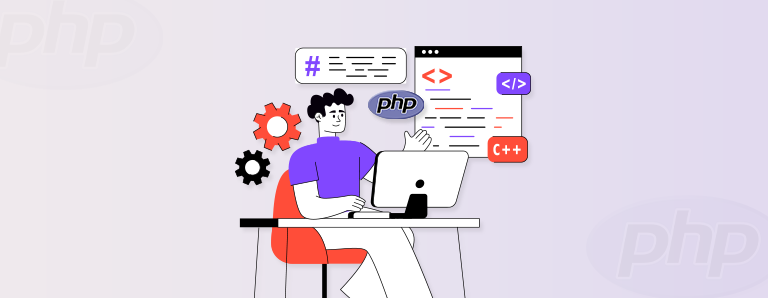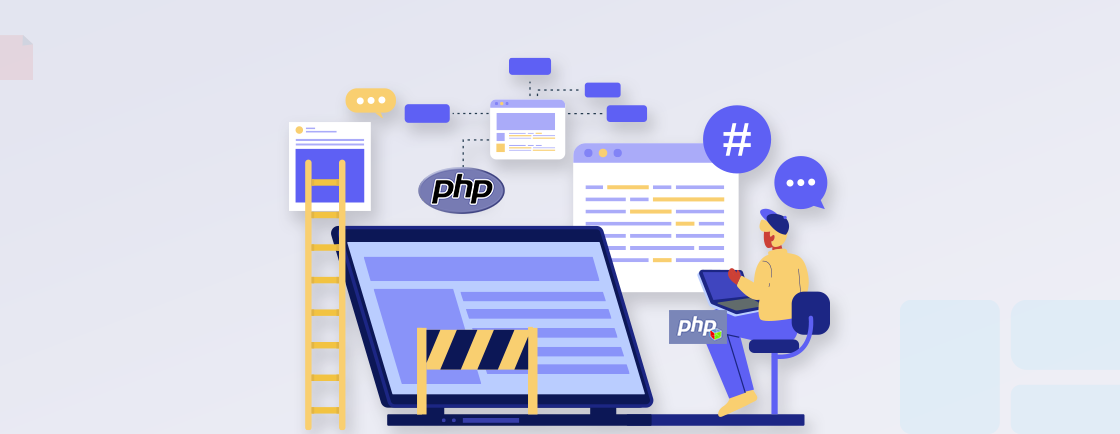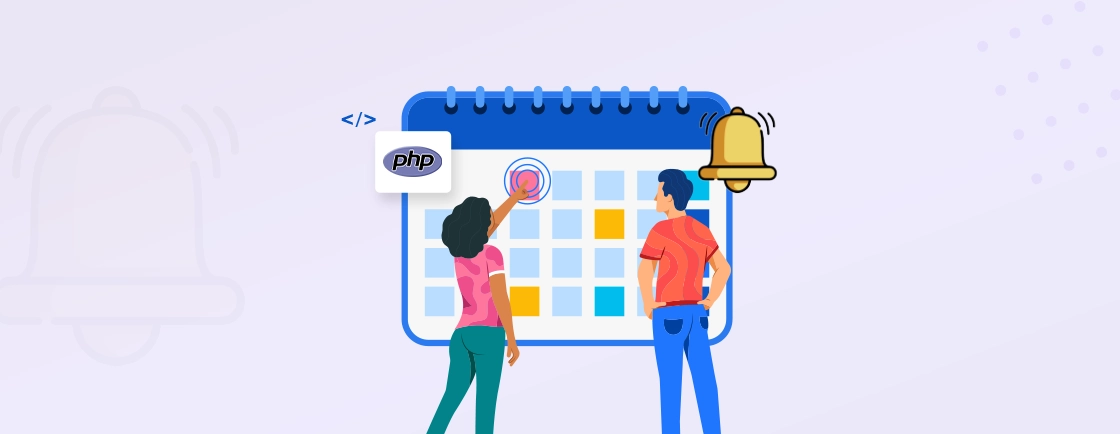Table of Contents
Navigating the vast landscape of web programming languages can be complex. That’s where PHP, a language that consistently piques interest, comes into the game. In this concise yet comprehensive post, we’ll uncover the Advantages and Disadvantages of PHP, offering you an insightful guide to this powerful scripting language.
With years of hands-on experience, we’ve gained deep insight into PHP’s powerful features and potential challenges. Whether you’re an experienced developer choosing the right language for your next project or a business seeking reliable development solutions, this guide is designed to be your go-to resource.
Let’s get started on this journey, exploring the rewarding yet vast universe of PHP, elucidating its multifaceted advantages, and candidly discussing its disadvantages.
What is PHP?
PHP stands for ‘Hypertext Preprocessor’, a widely utilized open-source scripting language designed with web development in mind. Tracing through the history of PHP since its origin in 1994 by Rasmus Lerdorf, the language has become the cornerstone for server-side scripting tasks, distinguishing itself from client-side languages like JavaScript. It operates on the server, paving the way for the creation of dynamic, responsive websites.
PHP integrates seamlessly with HTML and works well with popular databases like MySQL, Oracle, and Microsoft SQL Server. Its versatility and powerful features make it a favorite among web developers worldwide, powering everything from simple blogs to complex e-commerce platforms. For any custom web development company, PHP offers a reliable and flexible foundation for creating robust, scalable websites.
What is PHP Used for?
Identifying what is php used for reveals it is mainly used by development companies, and it truly excels in this area. However, initially, it was used to build dynamic web pages. Web developers prefer to use this PHP scripting language to build the website application’s server side. Though PHP is originally a general-purpose language, it may have other implementations if needed. For example, it is possible to create desktop applications using PHP. Starting from version 5, the PHP language supports object-oriented programming (OOP), offering a whole new set of capabilities.
The versatility of PHP results from its excellent ability to combine with other coding languages. For example, web developers may write extensions to PHP using the C programming language, which enables adding even more functionality. Furthermore, PHP has many available frameworks and libraries, such as Zend Framework, Phalcon, Yii, Laravel and Symfony.
WordPress and Facebook are two famous examples of software written on PHP. WordPress is the most famous and used CMS on the internet. Among all the sites that use such systems, about 48% of them employ WordPress. WordPress fits almost every role thanks to many themes and plugins, both inbuilt and third-party. You may use it to make a blog, an online store, and many other types of sites.
What are the Features of PHP?
PHP programming language is extensively used in developing web-based applications in numerous domains. The technology allows functions like graphical displays, DIV tables, and login functions which widens its use across all purposes. Here are a few huge applications:
- Content Management System
- Image Processing
- Graphical Interface Design
- Data Analytics and Representation
- E-commerce Websites and Applications
- Web-Based Applications
- General-Purpose Website Development
Advantages of Using PHP in Web Development
Web developers have several scripting languages to build websites and applications like ASP, CGI, Perl, and PHP. However, PHP is popular and widely used for scripting. Here are some crucial advantages of why PHP is preferred.
1. Performance
PHP scripting language is executed faster than scripts written in other coding languages such as ASP and JSP. PHP uses its memory, so the loading time and server workload automatically get reduced. This results in better PHP performance and faster processing speed.
2. Open-Source
PHP stands tall among its peers for being open-source, meaning its source code and software are readily available for use and modification without any additional costs. This openness empowers developers to tailor PHP’s versions and updates to their unique needs, fostering a level of customization unmatched by proprietary languages.
PHP’s components, downloadable at no expense, further enrich its capabilities, enhancing the range and depth of applications one can build. This unrestricted access, coupled with cost-effectiveness, defines why php is great for startups looking for an authoritative edge in web development, making it a favored choice for developers and businesses alike.
3. Familiarity with the Syntax
When it comes to PHP, one of the core features that elevate its prominence in the scripting language world is its intuitive syntax. PHP’s syntax is lucid and comprehensible, ensuring a smooth coding journey for programmers. Developers find themselves at ease while scripting with PHP, thanks to its familiar syntax structure.
This enhances coding efficiency, fostering an environment conducive to the swift and accurate development of web solutions. As an authority in PHP development, we vouch for the user-friendly nature of PHP syntax, making it a top-tier choice for both novice and experienced programmers alike.
4. Embedded
The ability to flawlessly embed PHP code within HTML scripts and tags is a standout feature that solidifies PHP’s position in the web development landscape. Drawing on our deep-seated experience in PHP development, we can attest to how this embedding capability enhances the language’s overall usability and efficiency.
With PHP, developers aren’t obliged to maintain separate scripting documents or navigate through complicated programming maneuvers. Instead, PHP allows for direct integration of its code into HTML, employing straightforward PHP tags. This consolidated approach boosts developer efficiency, clarifies code interpretation, and accelerates the overall web development timeline.
5. Platform Independent
PHP is a truly platform-independent scripting language, available across multiple operating systems including Windows, Mac, Unix, and Linux. This versatile nature empowers applications developed in PHP to transcend OS boundaries. In other words, a PHP application created on one operating system can be executed seamlessly on another.
Also, there is no need for specific modifications or adjustments. This platform agnosticism of PHP not only streamlines the development process but also significantly enhances the application’s accessibility and reach. As such, PHP’s platform independence is a vital asset for developers and businesses alike. It ensures optimal compatibility and operation across diverse technological landscapes.
6. Database Support
As an integral part of web development, database support is an essential attribute to consider when choosing a scripting language. As a scripting language, PHP offers exemplary database support. That proves its capacity in the competitive web development landscape. PHP seamlessly interfaces with a multitude of leading databases such as MySQL, ODBS, and SQLite, among others.
This versatile language facilitates efficient data storage and retrieval, making it a highly sought-after tool for robust database-driven website development. Its comprehensive database support simplifies the development process and increases the overall efficiency and performance of the website. It proves PHP’s inherent value to developers and businesses.
7. Error Reporting
PHP comes equipped with pre-configured error reporting constants, instrumental in generating error or warning notices. These constants include but aren’t limited to, E_WARNING, E_ERROR, E_PARSE, and E_STRICT.
In PHP development, these constants serve as the language’s built-in watchdog, diligently monitoring your code’s execution. E_WARNING, for instance, signals a run-time warning, whereas E_ERROR represents a fatal run-time error halting script execution. On the other hand, E_PARSE identifies syntax errors, and E_STRICT recommends code modifications for better interoperability and forward compatibility.
8. Loosely Typed Language
In terms of features, PHP stands as a loosely typed language. This characteristic means developers aren’t required to explicitly declare the datatype of a variable before using it. It offers flexibility that often speeds up the coding process. Instead, PHP intelligently infers the datatype at the point of execution, based on the value assigned to the variable. This dynamic typing provides a certain fluidity and versatility. But also demands careful coding practices from developers. It is essential to avoid unexpected outcomes.
9. Web Servers Support
PHP exhibits an exceptional degree of flexibility by being harmonious with virtually all of the local servers prevalent today, including Netscape and Apache to Microsoft IIS. This universal compatibility transcends boundaries, making PHP an ideal scripting language for diverse server environments. It’s no exaggeration to state that regardless of your chosen server, PHP is effective for being ready to integrate and operate seamlessly.
It reflects its power and versatility in the web development world. This feature alone significantly contributes to PHP’s status as a preferred tool among expert PHP developers globally. It further reaffirms PHP’s commitment to adaptability and robustness, qualities that are paramount in web technologies.
10. Security
PHP is a robust and reliable language, that offers an impressive suite of security features. Its multi-layered security protocols effectively deter potential threats, securing websites from harmful attacks. From safeguarding against SQL injections to mitigating cross-site scripting, PHP has embedded functionalities. These capabilities helps thwart malicious exploits. It empowers developers to construct secure, reliable digital platforms, offering peace of mind to both developers and end-users.
The inherent security layers of PHP underscore its credentials as a trusted choice for web development, reinforcing the reason why it’s favored by experts across the globe. Thus, PHP isn’t merely a language for building websites; it’s a fortress for your digital assets.
11. Control
Unlike many programming languages that necessitate lengthy scripts, PHP accomplishes equivalent tasks in a more succinct manner. This brevity not only enhances readability but also streamlines the development process. It saves precious time and resources in the development process. Complex data processing involving PHP and regular expressions demonstrates how inherent control facilitates seamless modifications.
Adjustments to a site, whether minor or major, can be implemented seamlessly. It gives developers and businesses flexibility to adapt and evolve their web presence.
12. Monitoring of Real-Time Access
PHP’s ability to chronicle users’ most recent logging accesses offers a valuable tool for understanding user engagement and anticipating potential threats. With PHP, expert developers can effectively track user log-ins, making it possible to identify patterns and preempt issues.
PHP stands as a potent tool for maintaining a secure and interactive digital environment, allowing developers to stay ahead of events with real-time data insights. Harness PHP’s capabilities to optimize your user interactions and secure your digital experience.
13. Features of Object-Oriented Programming (OOP)
Object-Oriented Programming (OOP) stands as a transformative methodology in the coding world. That provides structured, organized, and reusable code. PHP fully harnesses this approach, accelerating its performance and bringing in advanced features.
Key tenets like inheritance—where objects take on properties from ‘parent’ objects, and data encapsulation—shielding the internal workings of these objects, are integral to PHP’s OOP support. This fusion of PHP and OOP principles results in efficient, robust, and scalable code. Offer PHP developers an enhanced toolkit for tackling even the most intricate web development tasks.
14. A Helpful PHP Community
PHP scripting language has a large community of web developers who regularly updates online help, tutorials, documentation, and FAQs. It’s beneficial to learn PHP from the communities. The chances are high; it has already been answered for any query you have.
Disadvantages of Using PHP in Web Development
As we mentioned, this PHP scripting language is not without its faults, so let’s discover what they are and the common issues developers have with PHP.
1. Not as Versatile
Despite its strengths, PHP’s specialization in web development can limit its utility beyond this sphere. However, for crafting engaging web applications, PHP remains unmatched. Should your vision align with such web-centric projects, consider consulting with our expert PHP developers. In case you need more versatility, it would be better for you to look for a custom PHP development company that can help you with all your requirements.
2. Limited Debugging Tools
One common issue most developers have about PHP is its limited debugging tools. It handles errors poorly, especially when compared to other scripting languages. This is mainly because the debugging tools needed to search and track for such errors don’t work either. But you can avoid such issues by using efficient coding standards.
3. Security Limitations
Since PHP is an open-source code, it also means that it has an ASCII text file, which is easily accessible. This primarily means that whatever code you write, the general audience can easily view it, along with all bugs your code has. This means they can use those bugs against you; therefore, you need improvised coding standards to prevent such issues.
Here are some common risks with PHP development:
- XSS ( Cross-Site Scripting)
- SQL Injection
- Session hacking
- Source code revelation
4. There are Easier-to-use Languages
Although PHP is quite an easy-to-use language, beginners may find it challenging to learn due to its code-intensive nature. That is particularly noticeable when compared to languages like Python. That latter is known for its simplicity and near-English syntax, providing an easier entry point for newcomers. Yet, PHP’s robust and flexible features, despite its initial complexity, are a valuable language for budding web developers.
Despite many drawbacks, PHP is a trendy programming language to date. With the wide usage of the programming language, it’s clear that the advantages of PHP are far more than its disadvantages. Therefore, it still has a huge community of developers.
Future Scope of PHP in Web Development
The PHP scripting language is still at the top of the web development world. A considerable share of all sites run on this programming language, and the easy-to-use content management system (CMS) WordPress continues to gain popularity. It allows users to deploy and design their sites on free or paid hosting platforms with just a few clicks. The ongoing evolution ensures the future of PHP development remains bright, as it continues to be used extensively across the web.
Although, the distant perspectives of PHP language raise concerns regarding its future viability in website development. For example, Python language already attracts more new developers than PHP language, and this trend is not likely to change soon. Besides, Python language deals with some high-demand features, such as machine learning (ML), better than PHP due to the presence of specialized libraries.
Upcoming iterations, including PHP 8.5, represent the remarkable leap in evolution required to remain competitive with the Python language.
Conclusion
In this comprehensive exploration, we’ve dissected PHP’s various aspects, from its key features and applications to its strengths and potential drawbacks. As a leading PHP development company, our mission is to illuminate the diverse facets of this powerful scripting language, helping you to make informed decisions in your development journey.
Hire PHP developers from our team who understand the vast and rewarding universe of PHP, as well as the potential challenges that it may present. By shedding light on the advantages and disadvantages of using PHP in web development, we hope to have provided a valuable resource for both seasoned developers and businesses alike. For businesses looking to leverage PHP’s robust features or developers seeking to enhance their skills, don’t hesitate to get in touch with us for further guidance and services.
FAQs Related to Advantages and Disadvantages of PHP
Why is the PHP scripting language so popular?
Many large organisations such as WordPress use it, and it has given rise to numerous communities of developers. People who are specialists in using the PHP scripting language are in high demand for jobs. Besides, there are plenty of tutorials, manuals, etc., available that one can use to learn how to use it.
What are the pros of PHP? Why is it relevant for future?
The key pros of PHP ( with which most programming languages can’t compare) is that it loads websites too fast. It’s also easy to use, has a great community, is scalable, and is free. Aside from these main pros, the PHP team is always looking for ways to improve the language, so additional benefits are on the horizon with newer PHP updates and versions.
Is PHP suitable for beginners?
Yes, PHP is considered beginner-friendly. Its simple PHP syntax and extensive documentation make it easier for beginners to learn and start developing web applications.
What are some popular PHP frameworks?
Some popular PHP frameworks include Laravel, Symfony, CodeIgniter, and CakePHP. These frameworks provide a structured approach to PHP for web development, offering routing, database abstraction, and templating features.
Master PHP Web Development
Access expert guides and tips to enhance your PHP programming capabilities.





